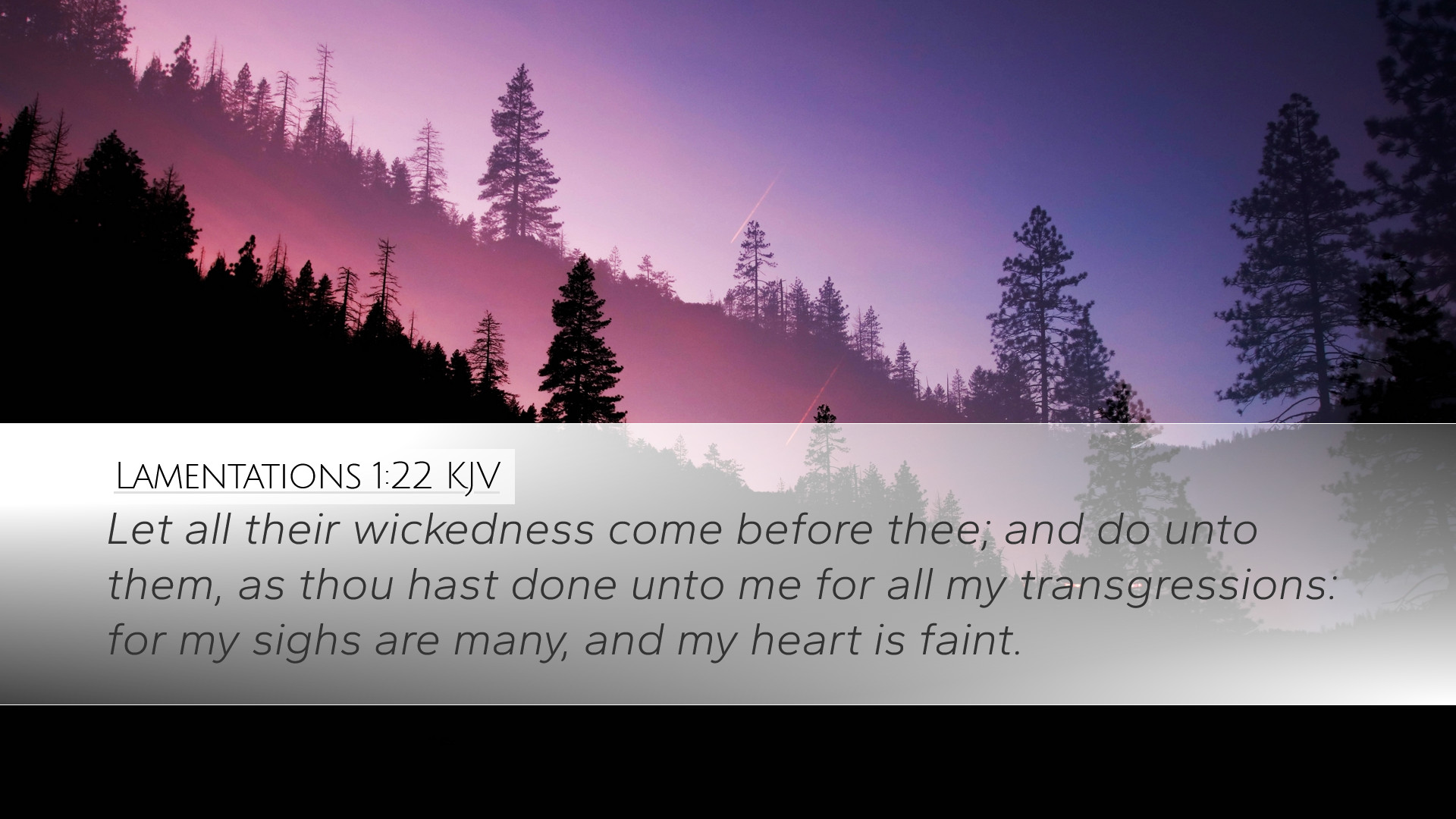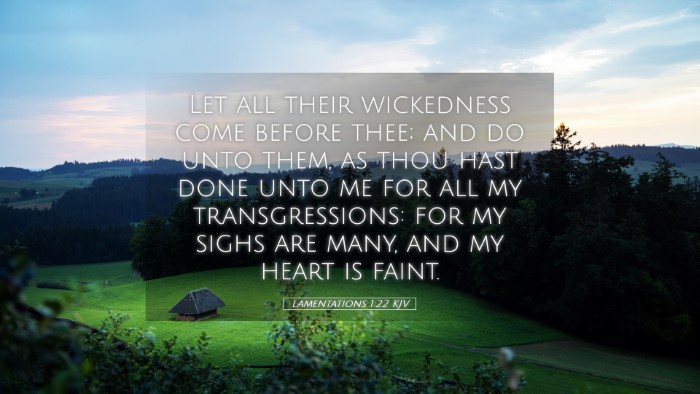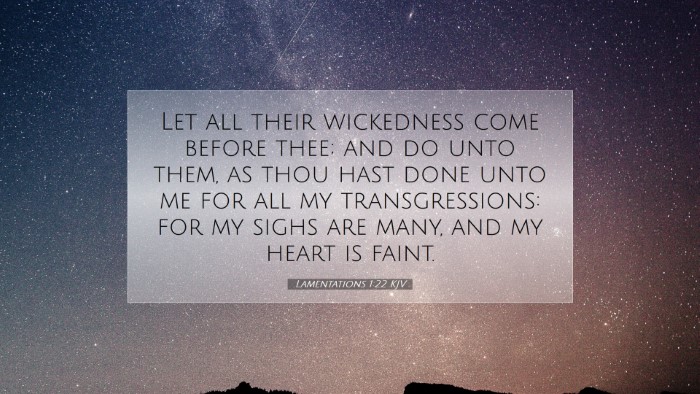Lamentations 1:22 Commentary
Bible Verse: Lamentations 1:22 - "Let all their wickedness come before thee; and do unto them, as thou hast done unto me for all my transgressions: for my sighs are many, and my heart is faint."
Introduction
The Book of Lamentations, attributed to the prophet Jeremiah, is a poignant expression of grief over the devastation of the city of Jerusalem and the suffering of its people following the Babylonian exile. In Lamentations 1:22, we encounter a heartfelt plea for divine justice and a recognition of personal transgressions. This verse encapsulates themes of suffering, retribution, and the longing for divine intervention. The commentary that follows synthesizes insights from notable public domain theologians such as Matthew Henry, Albert Barnes, and Adam Clarke.
Contextual Background
The lamentation is set against the backdrop of Israel's dire circumstances after the destruction of Jerusalem. The initial chapters present a picture of desolation, humiliation, and sorrow. The speaker reflects on the consequences of sin, both personal and communal, and the resulting judgment from God. Lamentations serves as a theological reflection on suffering and the nature of God's justice.
Verse Analysis
Let all their wickedness come before thee
This opening phrase is a direct appeal to God, asking Him to bring the wickedness of the enemies before His eyes. Matthew Henry emphasizes that it signals the prayer of a distressed soul yearning for divine acknowledgment of injustice. The speaker desires that God does not overlook the sins of those who have inflicted pain upon him and his people.
do unto them, as thou hast done unto me
The request for God to act against the oppressors is grounded in the speaker's own sufferings. Albert Barnes notes that this reflects the desire for retribution, highlighting that the speaker is not asking for vengeance out of malice, but from a place of deep anguish and a sense of justice. This petition reflects the imprecatory nature of the Psalms, where the faithful cry out for God’s justice.
for all my transgressions
In acknowledging his own sins, the speaker assumes a posture of humility and confession. Adam Clarke remarks that this is crucial for understanding the broader principle of accountability before God. The recognition of personal sinfulness contrasts the speaker's own plight with that of others, reinforcing the idea that God’s dealings are just and that acknowledgment of transgressions is vital for restoration.
for my sighs are many, and my heart is faint
This closing remark encapsulates the intensity of the speaker's emotional and spiritual state. Matthew Henry interprets the 'sighs' as symbolic of deep, inexpressible grief. The faintness of heart illustrates despair and a sense of spiritual weariness that often accompanies profound suffering. This verse reflects the totality of human anguish, underscoring the need for divine comfort and intervention.
Theological Insights
- God's Justice: The text emphasizes that God's justice is both a comfort and a cause for fear. The faithful can appeal to God's righteousness, knowing that their suffering will be addressed in His time.
- The Role of Confession: Acknowledging one’s own sin is a critical step in seeking God’s mercy. True repentance opens the door for healing and restoration.
- The Weight of Grief: The human experience of grief is valid. Lamentations exemplifies that sorrowful cries can be offered to God, and they serve as a part of the faithful's relationship with Him.
Practical Applications
For pastors, students, and theologians, Lamentations 1:22 provides a framework for understanding human suffering within the context of divine justice:
- Counseling the Grieving: This verse may serve as a comfort for those in grief, reminding them that their cries are heard by God.
- Encouraging Repentance: The interplay of suffering and sin can encourage introspection and the pursuit of personal holiness.
- Addressing Injustice: The call for justice against oppressors can empower the church to speak and act against injustice in society.
Conclusion
Lamentations 1:22 encapsulates the heart of lament—a cry for justice amidst suffering, self-examination, and a plea for God’s intervention. The insights drawn from public domain commentaries by Matthew Henry, Albert Barnes, and Adam Clarke reveal the depth and richness of this text, inviting readers to engage with its profound themes. By reflecting on this verse, one is beckoned into a deeper understanding of the complexities of God's justice and mercy in the life of faith.


